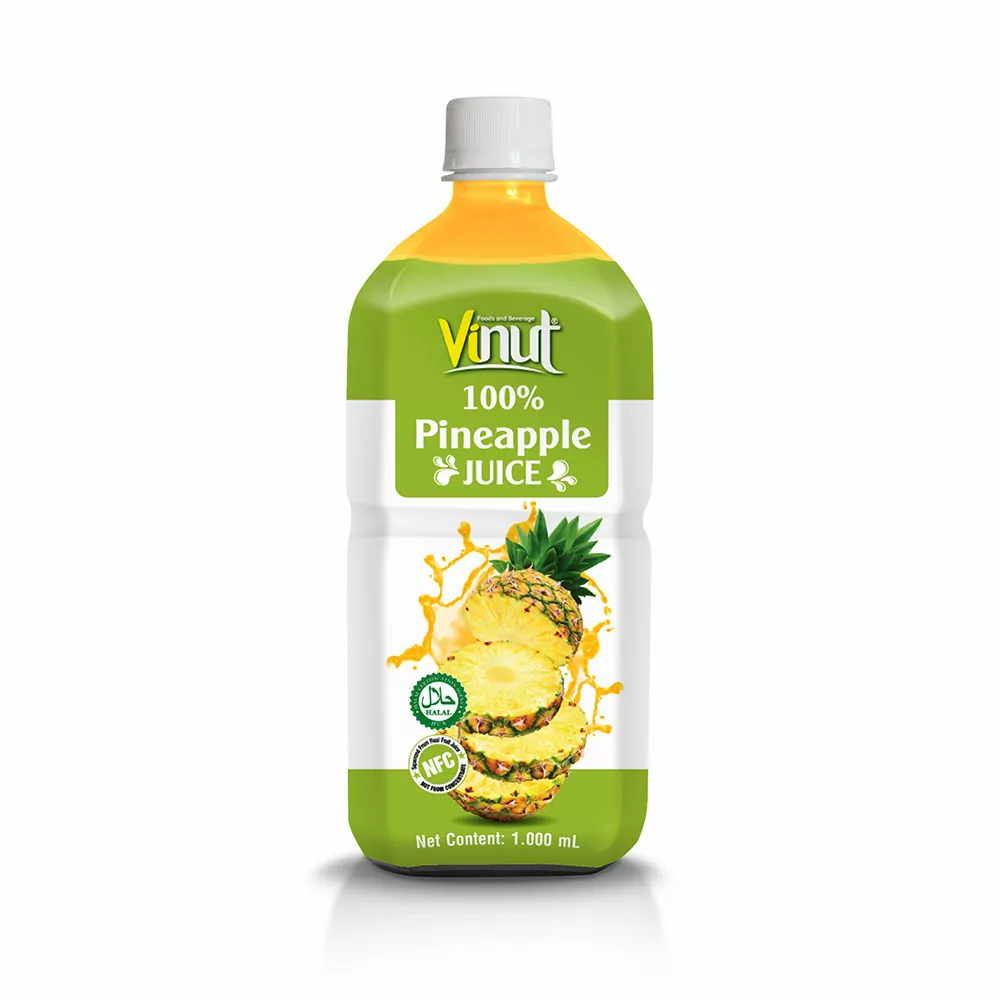Is Pineapple Juice Safe for Everyone? What You Need to Know

The Benefits of Pineapple Juice
Before diving into the potential downsides, let’s quickly recap why pineapple juice is such a popular choice:

Rich in Nutrients: The juice is packed with Vitamin C, manganese, and bromelain, a unique enzyme with anti-inflammatory properties.
Supports Digestion: Bromelain aids protein digestion and improves nutrient absorption.
Boosts Immunity: High levels of Vitamin C help strengthen the immune system.
Promotes Hydration: With its high water content, this juice is both refreshing and hydrating.
Potential Side Effects of Pineapple Juice
While pineapple juice offers numerous health benefits, it may cause issues for some individuals. Here are the most common side effects:
1. Stomach Irritation
The juice is highly acidic, which can:
Trigger acid reflux or heartburn in people with sensitive stomachs or gastroesophageal reflux disease (GERD).
Cause discomfort or worsen symptoms for those with ulcers.

2. Allergic Reactions
Some people may be allergic to pineapples or bromelain, experiencing symptoms such as:
Itching or swelling of the mouth, tongue, or throat.
Skin rashes or hives.
Difficulty breathing in severe cases.

3. High Sugar Content
Although the sugars in this juice are natural, they can:
Cause blood sugar spikes, especially in people with diabetes or insulin resistance.
Contribute to weight gain if consumed in excess.

4. Risk of Interaction with Medications
Bromelain in this juice may interact with certain medications, such as:
Blood thinners: It can increase the risk of bleeding.
Antibiotics: Bromelain can enhance the absorption of some antibiotics, potentially causing side effects.
Sedatives: It may amplify the effects of sedative medications.

5. Dental Health Concerns
The natural acids and sugars in pineapple juice can:
Erode tooth enamel over time, leading to increased sensitivity and cavities.
Contribute to plaque buildup if proper oral hygiene is not maintained.

Who Should Avoid or Limit Pineapple Juice?
Pineapple juice is generally safe for most people when consumed in moderation. However, certain groups should exercise caution:

a. Individuals with GERD or Acid Sensitivity
The high acidity of pineapple juice can aggravate symptoms of acid reflux, making it unsuitable for those with sensitive stomachs.
b. People with Allergies
Anyone allergic to pineapples or related fruits should avoid pineapple juice to prevent adverse reactions.
c. Diabetics and Those Monitoring Blood Sugar
Due to its natural sugars, pineapple juice should be consumed in small quantities by individuals with diabetes or those managing their blood sugar levels.
d. People on Certain Medications
Consult your doctor if you’re taking medications that may interact with bromelain to determine whether pineapple juice is safe.
e. Children and Toddlers
While pineapple juice can be a nutritious treat for kids, its acidity and sugar content may be too harsh for young children’s digestive systems and teeth. Diluting it with water is a safer option.
Tips for Enjoying Pineapple Juice Safely

Consume in Moderation: Limit your intake to one serving (about 1 cup) per day to avoid excessive sugar and acid consumption.
Dilute with Water: Mixing pineapple juice with water can reduce its acidity and sugar concentration, making it gentler on the stomach and teeth.
Rinse Your Mouth: After drinking pineapple juice, rinse your mouth with water to neutralize acids and protect your enamel.
Choose Fresh Juice: Opt for fresh pineapple juice over store-bought versions to avoid added sugars and preservatives.
Consult a Doctor: If you have health concerns or take medications, consult your healthcare provider before adding pineapple juice to your diet.
Pineapple juice is a delicious and nutritious drink that offers numerous health benefits. However, it’s essential to be aware of its potential side effects and consume it mindfully. By understanding your body’s needs and following the tips above, you can enjoy pineapple juice safely and reap its tropical goodness without worry.






